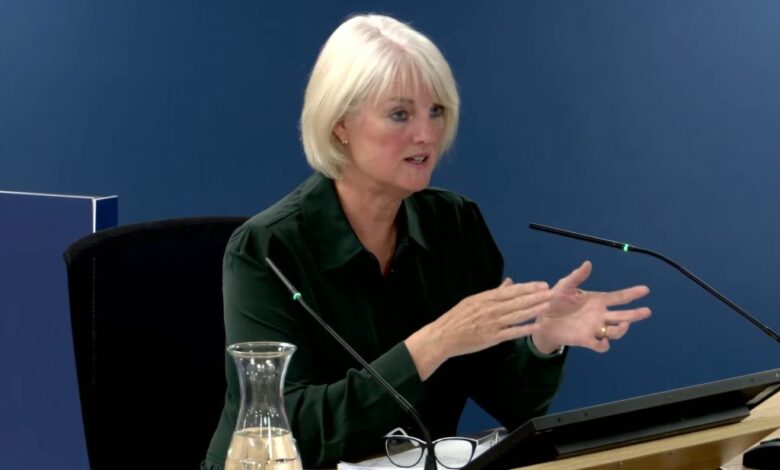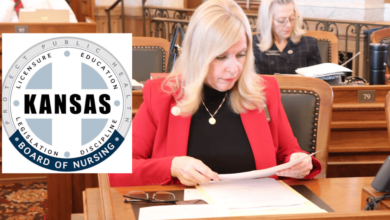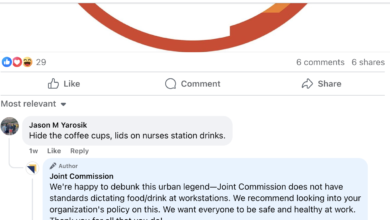Covid inquiry: maternity was not seen as an ‘essential’ service

Maternity must be seen as an essential service in any future pandemic, or else the consequences will be “devastating” for staff and families, an inquiry has heard.
Chief executive of the Royal College of Midwives (RCM), Gill Walton, said the fact that maternity services were not prioritised by the government or NHS England during the Covid-19 pandemic created tension between women, families and staff.
“I think women’s services in the NHS don’t get the right attention and maternity is part of that”
Gill Walton
Ms Walton appeared as a witness to Module 3 of the UK Covid-19 Inquiry on 7 October.
During her testimony, she noted that maternity services went into the pandemic with “a shortage of midwives” which was already having an impact on the quality and safety of care.
These shortages were exacerbated once the pandemic hit, as many dual registered nurse-midwives were redeployed across other NHS services, such as intensive care units and gynaecology.
Anaesthetists were also redeployed which Ms Walton said led to “issues around being able to provide safe epidural services”.
“There were lots of examples that were raised with us as a huge concern and a huge anxiety amongst the staff, but also in terms of the women as well accessing care,” she added.
Central to Ms Walton’s testimony in the inquiry was criticism around the fact that maternity services were not prioritised by the government.
She warned that “maternity services weren’t seen as an essential service” locally or nationally.
“The focus was really on intensive care units, respiratory areas and emergency departments,” she explained.
“And maternity is an essential service, you can’t stop it. You know, delivering that safe care is absolutely a priority for any NHS service.”
Several restrictions were placed on maternity services during the pandemic years, including restrictions on visiting during appointments, scans and births, and restrictions on birth settings and pain relief.
Implementing these measures not only had a “significant impact” on the mental wellbeing of midwives, but also caused “tension” between women, families and staff.
Ms Walton said: “Primarily, midwives, maternity support workers and the whole maternity team wanted to provide a high quality of care, safe care, [and] choice for women as they always did.
“They were very anxious and stressed not being able to do that, and disappointing and upsetting the women in their care.
“So that caused distress in itself.”
Ms Walton said staff “just about managed to get through day by day” during the height of the pandemic.
She added: “I would say that staff tried their very, very best and it had a personal toll on their health and their mental health which I think they are still recovering from.
“I don’t think it is over. I think it has impacted on midwives wanting to stay in the profession.”
One of the most significant restrictions in place during the pandemic during the first lockdown was a “blanket ban on visitors” to antenatal wards.
As services began to open up again, reintroducing visiting was a “really difficult thing” logistically for midwives to do, explained Ms Walton.
She said: “Staff didn’t want to tell people they couldn’t have their partners with them during their whole maternity experience because that isn’t what midwives do.
“But they were working in difficult environments, tiny spaces… there was a shortage of [personal protective equipment] still.
“And so bringing more people into inappropriate environments was really difficult for lots of services, and midwives were really worried about the impact on increasing infection for the staff but for the women and families and the babies who were in the services.”
To support midwives and those in their care, the RCM and the Royal College of Obstetricians and Gynaecologists (RCOG) produced advice on a variety of issues, including home visits, pre-planned and emergency appointments and the attendance of birth partners.
In July 2020, the RCM published guidance on reintroducing visiting, which was done in response to the fact that NHS England was not putting out clear guidelines, the inquiry heard.
Ms Walton argued that the inconsistencies and variation across services when it came to reintroducing visiting “made people very anxious”.
She added: “At the time, I think NHS England were praising those services that were opening up, and some could, and then being quite critical and putting targets on services that couldn’t open up and giving them deadlines to open up.
“I think that caused a huge anxiety and we had lots of meetings with midwifery leaders who expressed how difficult it was to keep thinking about the safety of women and families and their staff in quite often poor environments that they were working in.
“They could not see how they could completely open up services safely.”
“Staff didn’t want to tell people they couldn’t have their partners with them because that isn’t what midwives do”
Gill Walton
Reflecting on the lessons learnt, Ms Walton said maternity services must be seen as essential going forward.
She noted that maternity was primarily “a women’s service delivered by women”.
“I believe that it is important that women’s voices and the voices of staff who are looking after them can be heard, they are able to be heard at every level of the system, and to government,” she said.
Lady Justice Heather Hallett, who is chairing the inquiry, quizzed Ms Walton on whether there was a link between maternity being a women-led service and the fact that it was not prioritised by the government.
In response, Ms Walton said: “I think potentially yes. I think women’s services in the NHS don’t get the right attention and maternity is part of that.
“I think it has been seen for a long time as ‘women having babies’.
“Actually… if we don’t get it right, it can very quickly go wrong and the outcomes, which I know you will have heard of, are absolutely devastating for the families.
“So I absolutely believe that getting it right at the start of life, having maternity services prioritised in the NHS, is the right thing to do and it actually is an investment in the future health of the population.”
More from the Covid inquiry







